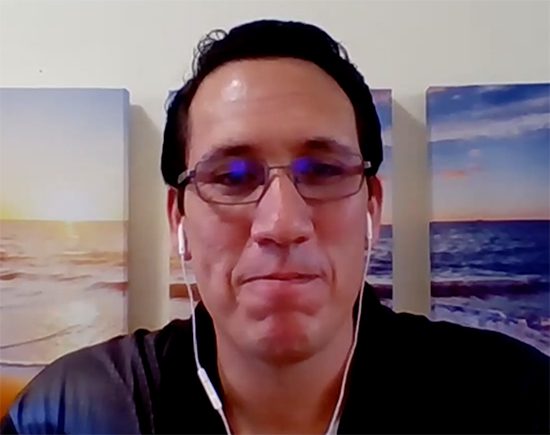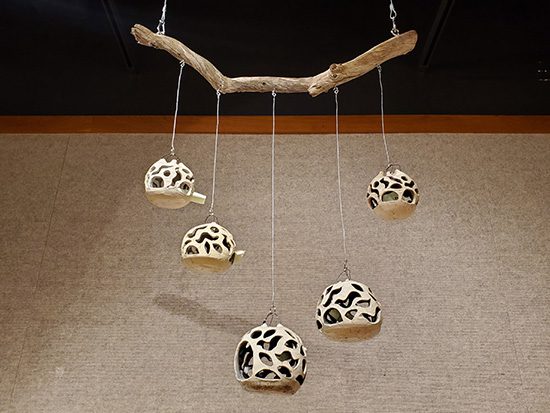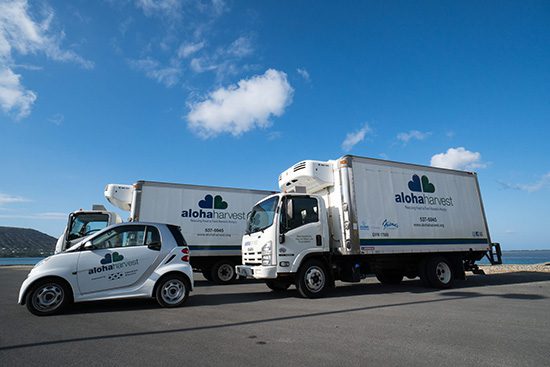
– Courtesy of Liza Simon
by Eddy Boulton, Will Dozier, Mason Hoopii-Becerra, Chyrs Houghton, Yeshua Ben-YHVH Maxwell and Adriana Munoz, Special to Ka‘Ohana
Editor’s note: This interview has been edited for length and clarity.
Jarrett Keohokalole is in the second year of his four-year term as a Democratic member of the Hawaii State Senate, representing the 24th district which includes Kāne‘ohe and Kailua. Had this been a normal year, Sen. Keohokalole would now be wrapping up this legislative session before a May 7 deadline with a flurry of decision-making on the bills that survived the more than 1,180 measures up for consideration by lawmakers in 2020.
Instead, normal is not the right word for much of anything in 2020. Amid coronavirus fears and limits on gatherings of more than 10 people, the Legislature went into an unprecedented and indefinite recess on March 16, leaving lawmakers to continue work in their offices, albeit in isolation.
While their ability to take official action is limited, Sen. Keohokalole along with seven Senate colleagues have formed a COVID-19 committee to act as a sounding board for constituent concerns that are too numerous and too nuanced to be covered in the daily press briefings provided by Gov. Ige and cabinet members who have executive authority in the current crisis.
In a wide-ranging interview with students from WCC’s JOUR 150: Media and Society course, Sen. Keohokalole addressed many of the same questions the public has put to the committee, namely how can Hawai‘i cope with a deadly virus and also prepare to begin anew despite deep economic losses mounting daily during the officially ordered shutdown.
Q: What are some of the major concerns people are raising with you and the Senate COVID-19 Committee, and how do you go about prioritizing them?
Sen. Keohokalole: Initially, we got involved in the quarantining of passengers on arriving flights. That was a major concern with my constituents at the outset of this crisis, related to containing the disease and keeping people alive. Recently, it’s been questions of money, mainly because we have people in the community who are not getting paychecks. I am sorry to anticipate what’s going to happen, if people are not working. We will see difficulty, if not now, then eventually in people feeding their families. That is a top concern for me.
Q: As a sustainability student at WCC, I would like to know how it might be possible to get a parcel of land and start a project to help grow our own resources so we won’t be facing this lack of food in the future.
Sen. Keohokalole: I am not a farmer, but when I was in the (State) House (of Representatives) from 2014 to 2018, I represented the district all the way to Waiāhole, which has many farmers. If there is one single issue the farmers are concerned with, it is the lack of labor.
It is a fact that farming is not a desirable industry. But if there is one program I could point you towards, for you or for any students or constituents who are looking to find land, water, mentorship, seeds, anything to support a future in farming as we move forward in this crisis, it is GoFarm Hawaii. The Hawaii Department of Agriculture has that program. They partner with everyone in the farming industry: the Farm Bureau, the farmer’s union, the organic guys, the industrial guys. They are part of our hardcore agricultural community, which is quite small, but they collaborate well. But again, the biggest problem we have as we look at food sustainability at this time is the labor. I believe the average age of a farmer is now 62 years old.
Q: Senator, I appreciate what you said. But right now in this pandemic, Hawai‘i has a natural greenhouse. So, can you help us understand why we still ship in so much of our food?
Sen. Keohokalole: In general, the economics of food are very difficult. We are very worried about our restaurant people right now; their margins of profit are slim. With farmers, it is hard work that is not highly profitable, especially when land is going to be more valuable if you put a home or a hotel on it than if you grow bananas or any other crop. So the economics of it do not make it a desirable career path.
This is why lawmakers have tried to do a lot to incentivize a new generation of farmers with programs. If you are dedicated to committing your life to farming, it is not all that difficult to get a piece of land, but the commitment has to be there.
Q: Unlike farming, technology is a growth industry in many places. Would our state government be into supporting something like a tech center to help grow the economy when the shutdown ends?
Sen. Keohokalole: So that’s one of those things that I can talk about all day. We created the Senate Technology Committee. The Hawai‘i Technology Development Corporation is an entity we helped to set up. I would say that it is their job to foster tech-based innovation in the state. You generally don’t want the government driving tech-based economic development. We are better at supplementing efforts that are already on their way.
The challenge with the technology-based economic development in Hawai‘i is that local commercial investment is more focused on tourism, land and military. So the guys from Silicon Valley see that, and they are not that interested in coming into Hawai‘i. This becomes a chicken and the egg problem. People move away because there is not enough job opportunity, but there is not enough job opportunity because the start-up community cannot get enough funding they need from the local and mainland investors. So what (legislators) have been trying to do is find areas of economic development where there’s proven success, where the community has been able to leverage their strategic globally competitive assets. They have to do what they do best and quadruple down on it and then develop a reputation as a sector in that area and use that as an attractor to get this ecosystem going. That’s what we did in tourism, and it was successful.
So, right now, I am doing a project with Hawai‘i Institute of Marine Biology, because it is the world’s premier coral research facility with the Kān‘eohe Bay ecosystem being a definitive marine ecosystem able to handle warming events and rebound. The challenge is bringing people together around that one thing and then directing it with the education community so that we can develop the new jobs around it. And we need to do this right now. One thing that’s going to come out of our transition to the internet in this crisis is more reliance on technology. For us as an isolated community far from the rest of the world, it is especially important for us to adapt. I can talk about this all day.
Q: Would there be government support for building up the gaming industry, which is very appealing and profitable in other places and could help bring Hawai‘i out of the huge economic downturn we’re facing?
Sen. Keohokalole: There is one thing I want to say about something like gaming and that is as a state government we don’t want to go down that road assuming we can “build it and they will come.” We must be competing at the top.
I got asked last year as the chair of the Technology Committee to sanction gaming as a high school sport, but it did not go anywhere because there was a fear that kids would use it for (fun) and (not learn from it). Obviously, there’s more to it than that. So, if you guys want to help me with this, then let’s do it.
Q: I perfectly understand where you are coming from because in Asia gaming competition is huge. If people would want something like that here, they would have to step up locally. But if we are not competitive enough in gaming competition, would there be government support for something like game development, maybe an important part of the tech-based economy not to be overlooked?
Sen. Keohokalole: So, the other way to do it is to have the moon shot and hope the industry is created out of that. But when we get through this shutdown, we are not going to have a lot of extra money lying around in state government.
Q: A lot of what we have talked about so far in this conversation– agriculture, food security and technology–comes from building education with the little ones. You have to, for example, build the passion for the sciences when they are young. So coming out of the crisis, what do you see as a way education might proactively bring about (positive) developments in a situation where we will not have a lot of funding from the usual sources like the government?
Sen. Keohokalole: That’s a really hard question. There is really no way to answer it without saying the answer is not clear yet. The teachers are taking a first crack at teaching in this new reality. The best teachers in the world are trying to figure this out, so the kids graduating in coming years are going to be the first draft.
That reminds me, a month ago Microsoft Teams crashed. Same with Gmail. Did you know that? So, if even Microsoft and Google are not able to handle this massive move to the internet, it tells me no one is really prepared for it.
There is going to have to be a lot of innovation. I think a lot of it is going to be very positive. So that’s my roundabout answer. We are all going to have to figure out the things that are working that people will adapt to and take steps to ensure that this group of kids who are the subjects (of this transition time) will not lose out.
Q: There’s some resistance in other states to the official stay-at-home orders, maybe revealing people’s distrust in government. How compliant do you think your constituents are, and what is one message you would like to share with them in this crisis?
Sen. Kaohokalole: I am here for you, and I appreciate all the people who have to go to work and don’t want to. Particularly the folks who put themselves in harm’s way, and that’s from the grocery workers to the police, firefighters and the folks who help keep the system operating.
The system is also operating because our community has also been overwhelmingly in favor of being more safe than sorry and has been helpful–from healthcare workers to all the people who follow stay-at-home orders. That makes it so much easier for the government to respond responsibly and to be accountable. If there are less controversial situations going on, then the spotlight shines harder on the stuff that needs to happen.
By the end of the day, we are all trying to keep people alive and fed and housed and working, in that order. We are not going to be perfect at it. But the more people stay engaged and willing to listen, the better off we are going to be in the end.





